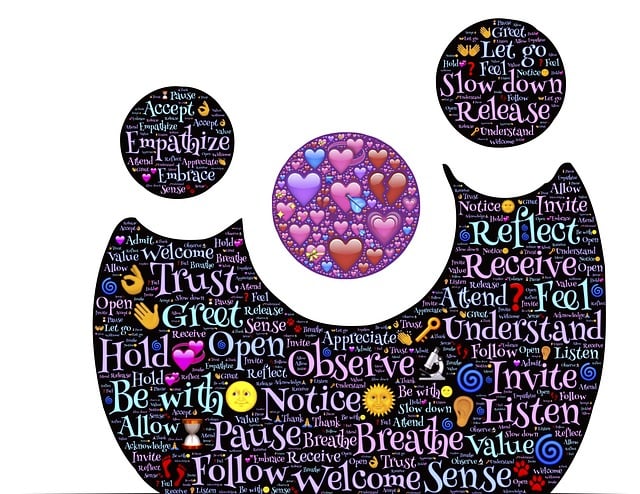Attachment-Based Couples Therapy (ABCT) is a powerful approach to relationship therapy that focuses on understanding early emotional attachments. By identifying attachment styles (secure, anxious, avoidant), couples can improve communication, resolve conflicts, and build stronger bonds. ABCT helps partners develop empathy, enhance intimacy, and transform insecure patterns into more secure ones, ultimately leading to deeper satisfaction and connection in their relationships.
“Uncover the power of attachment-based couples therapy (ABCT) – a revolutionary approach to healing relationships. This therapeutic method, rooted in attachment theory, delves into the emotional bond between partners, addressing core issues that often go unspoken. By identifying individual and shared attachment styles, ABCT helps couples understand their unique dynamic. Through enhanced communication and trust-building techniques, it fosters intimacy and resolves conflicts. Discover how this therapy can transform relationships, offering long-term benefits and success stories. Learn the importance of finding qualified therapists for a fulfilling relationship journey.”
Understanding Attachment Theory and Its Impact on Relationships

Attachment theory, a cornerstone in psychology, explores the deep emotional bonds that shape our relationships from infancy. This theory posits that individuals form internal working models about themselves and others based on early attachment experiences, influencing their later interactions. In the context of relationship therapy, understanding these attachments is paramount.
These internalized patterns can impact intimacy, communication, and conflict resolution in adult relationships. For instance, an individual with a secure attachment might approach partnership challenges with openness and trust, while someone with an anxious attachment may struggle with jealousy and clinginess. Recognizing and addressing these attachment styles is a key focus in attachment-based couples therapy, helping partners develop healthier interaction patterns for stronger, more fulfilling relationships.
The Core Principles of Attachment-Based Couples Therapy (ABCT)

Attachment-based couples therapy (ABCT) is a highly effective approach for improving relationships, focusing on individuals’ early attachment styles and their impact on adult romantic partnerships. This therapeutic method is built around a deep understanding of human connection and emotional needs, emphasizing that healthy relationships are rooted in secure attachment. The core principles involve helping partners understand and communicate their attachment needs, fostering empathy and intimacy.
Through ABCT, therapists guide individuals to recognize patterns from past relationships and how these influence current dynamics. By promoting awareness and understanding, couples can learn to respond sensitively to each other’s emotional cues, build security in the relationship, and enhance overall satisfaction. This process enables partners to develop healthier attachment styles, improve conflict resolution skills, and strengthen their bond.
Identifying Attachment Styles in Partners: Secure vs Anxious/Avoidant

In attachment-based couples therapy, understanding each partner’s attachment style is a crucial first step. Attachment styles, developed in early childhood, shape how individuals approach intimacy and relationships later in life. The two primary styles relevant to relationship therapy are secure and anxious/avoidant. A secure attachment indicates that an individual feels comfortable with closeness, has trust in their partner, and can freely express emotions. They feel safe in the relationship and are able to support their partner’s needs. In contrast, individuals with an anxious/avoidant style often struggle with feelings of insecurity and uncertainty about their partner’s commitment. They may seek distance or push their partners away due to fears of rejection or vulnerability. Recognizing these patterns is vital for therapists to tailor effective strategies in relationship therapy.
How ABCT Helps Uncover Underlying Emotional Patterns

Attachment-based couples therapy (ABCT) is a powerful approach that delves into the intricate emotional patterns within relationships. By exploring early attachment styles formed in childhood, ABCT helps partners understand their recurring behaviors and reactions in intimate relationships. This process involves identifying unmet needs and unconscious strategies that might have developed as coping mechanisms, allowing individuals to gain profound insights into their emotional responses.
Through attentive listening and secure therapeutic spaces, ABCT encourages clients to express their feelings freely. It facilitates the recognition of underlying emotional cues, such as fear, anger, or vulnerability, which often remain hidden beneath defensive patterns. By uncovering these deeper emotions, couples can begin to understand each other’s perspectives, fostering empathy and strengthening their connection. This heightened self-awareness enables individuals to challenge unhealthy attachment behaviors and create a more nurturing and responsive dynamic within the relationship.
Enhancing Communication: A Key Component of ABCT

In attachment-based couples therapy (ABCT), enhancing communication is a pivotal component that forms the backbone of successful relationship therapy. Unlike traditional approaches, ABCT delves into the underlying emotional attachments and secure bases that partners establish with one another, thereby fostering deeper understanding and more meaningful conversations. By exploring each partner’s unique attachment style—whether anxious, avoidant, or secure—therapists help couples navigate their interactions with increased awareness and empathy.
This nuanced approach encourages partners to express their feelings and needs openly, challenging them to move beyond superficial exchanges and engage in authentic dialogue. Through techniques such as active listening, emotional checking, and reflective listening, ABCT equips couples with the tools necessary to improve communication patterns, resolve conflicts constructively, and strengthen their bond. The result is a more fulfilling and intimate relationship built on solid foundations of trust and understanding.
Rebuilding Trust and Intimacy Through ABCT Techniques

In attachment-based couples therapy (ABCT), rebuilding trust and intimacy is a cornerstone of the treatment process. By understanding individual attachment styles—secure, anxious, or avoidant—therapists can tailor interventions to strengthen emotional connections. Techniques such as mindfulness exercises, secure base training, and affect regulation skills help partners create a safe and supportive environment, fostering genuine communication and vulnerability.
Through these methods, couples learn to respond sensitively to each other’s needs, manage conflict constructively, and rebuild trust. The ultimate goal is to transform insecure attachment patterns into more secure ones, leading to deeper intimacy, improved relationship satisfaction, and enhanced emotional resilience. ABCT offers a transformative journey where partners can cultivate a stronger bond, enabling them to navigate challenges with increased understanding and support.
Addressing Conflict Resolution Strategies in Couples Therapy

In attachment-based couples therapy, a significant aspect of improving relationship dynamics involves exploring and enhancing conflict resolution strategies. Many couples struggle with effective communication during disagreements, often leading to unresolved tensions and strained connections. Therapists in this approach help partners understand their unique attachment styles and how they influence their interactions. By recognizing patterns, individuals can learn healthier ways to express emotions, address underlying needs, and negotiate differences constructively.
The process begins by teaching couples specific skills for managing conflicts, such as active listening, empathy, and calm communication techniques. These strategies empower partners to navigate challenging conversations with respect and understanding. Through guided practice, individuals become more adept at de-escalating tensions, finding common ground, and making compromises that strengthen their bond rather than weakening it. Effective conflict resolution is a cornerstone of attachment-based therapy, fostering deeper intimacy and resilience within the relationship.
Long-Term Benefits and Success Stories of Attachment-Based Therapy

Many couples seeking long-lasting solutions to their relationship issues find that Attachment-Based Couples Therapy (ABCT) offers profound and lasting benefits. This form of therapy focuses on understanding and healing deep emotional attachments formed in early relationships, which often influence how we interact with partners later in life. By addressing these early patterns, ABCT empowers couples to develop healthier attachment styles, fostering better communication and intimacy.
One of the significant advantages is its ability to strengthen the bond between partners. Success stories are numerous; many couples report improved conflict resolution skills, increased emotional closeness, and a deeper understanding of each other’s needs. This therapy provides tools for navigating challenges, promoting resilience in relationships, and creating a more secure and loving environment. Research supports its effectiveness, demonstrating improved relationship satisfaction and stability over time for couples who undergo this therapeutic journey together.
Finding Qualified Therapists for Your Relationship Journey

Navigating the path to improving your relationship can be a daunting task, but finding the right therapists is a crucial step in your journey. It’s essential to seek professionals who specialize in attachment-based couples therapy, as this approach targets the emotional roots of relationships. To ensure effective support, consider looking for therapists with advanced training and certifications in this specific field. Online directories or referrals from trusted sources can be valuable resources to identify qualified experts.
When choosing a therapist, verify their credentials, experience, and the therapeutic modalities they employ. The right therapist will create a safe space for you and your partner to explore attachment issues, fostering open communication and understanding. Remember, finding the right support is key to unlocking healthier relationship dynamics.
